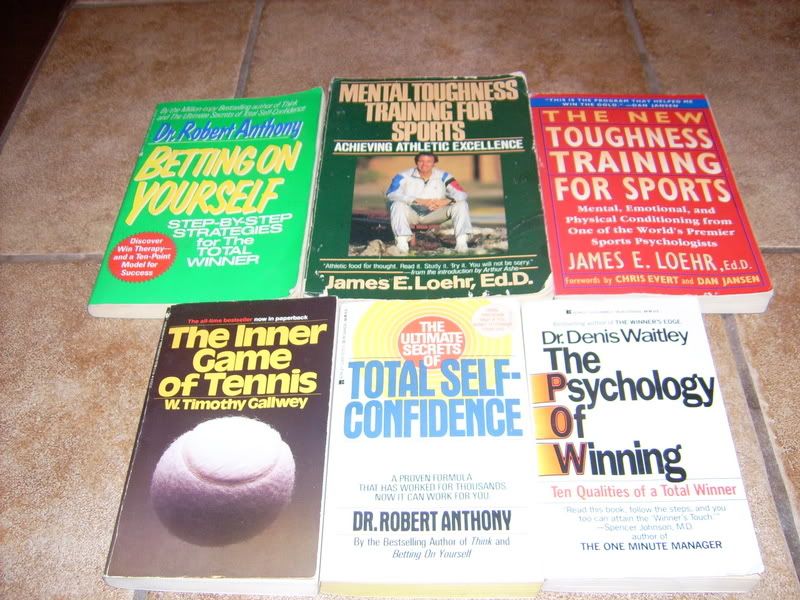This is taken from the book
The Inner Game of Tennis. It is posted for your reading pleasure.
Playing out of Your Mind
Reflect on the state of mind of a player who is said to be "in the zone" or "hot". Is he thinking about how he should hit each shot? Is he thinking at all? Listen to the phrases commonly used to describe a player at his best: "He's out of his mind"; "He's playing over his head"; "He's unconscious"; "He doesn't know what he's doing." The common factor in each of these descriptions is that some part of the mind is not so active. Athletes in most sports use similar phrases, and the best of them know that their peak performance never comes when they're thinking about it.
Clearly, to play unconsciously does not mean to play without consciousness. That would be quite difficult! In fact, someone playing "out of his mind" is more aware of the ball, the court and when necessary, his opponent. But he is not aware of giving himself a lot of instructions, thinking about how to hit the ball, how to correct past mistakes or how to repeat what he just did. He is conscious, but not thinking,
not over-trying. A player in this state knows where he wants the ball to go, but he doesn't have to "try hard" to send it there. It just seems to happen and often with more accuracy than he could have hoped for. The player seems to be immersed in a flow of action, which requires his energy, yet results in a greater power and accuracy. The "hot streak" usually continues until he starts thinking about it and tries to maintain it; as soon as he attempts to exercise control, he loses it.
To test this theory is a simple matter, if you don't mind a little underhanded gamesmanship. The next time your opponent is having a hot streak, simply ask him as you switch courts, "Say George, what are you doing so differently that's making your forehand so good today"? If he takes the bait and 95 percent will and begins to think about how he's swinging, telling you how he's really meeting the ball out if font, keeping is wrist firm an following through better, his streak invariable will end. He will lose his timing and fluidity as he tries to repeat what he has just told you he was doing so well.
But can one learn to play "out of his mind" on purpose? How can you be consciously unconscious? It sounds like a contradiction in terms; yet this state can be achieved. Perhaps a better way to describe the player who is "unconscious" is by saying that his mind is so concentrated, so focused, that it is
still. It becomes one with what the body is doing, and the unconscious or automatic functions are working without interference from thoughts. The concentrated mind has no room for thinking how well the body is doing. When a player is in this state, there is little to interfere with the full expression of his potential to perform, learn and enjoy.
The ability to approach this state is the goal of the Inner Game. The development of inner skill is required, but it is interesting to note that if, while learning tennis, you begin to learn how to focus your attention and how to trust in yourself, you have learned something far more valuable than how to hit a forceful backhand. The backhand can be used to advantage only on a tennis court, but the skill of mastering the art of effortless concentration is invaluable in whatever you set your mind to.
